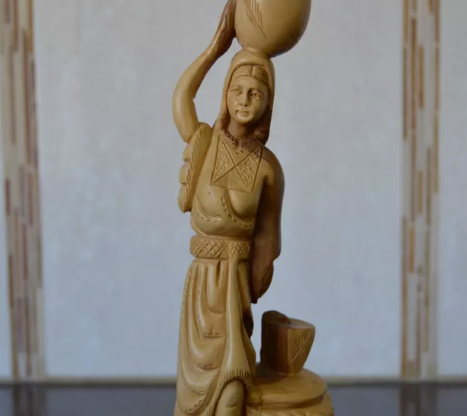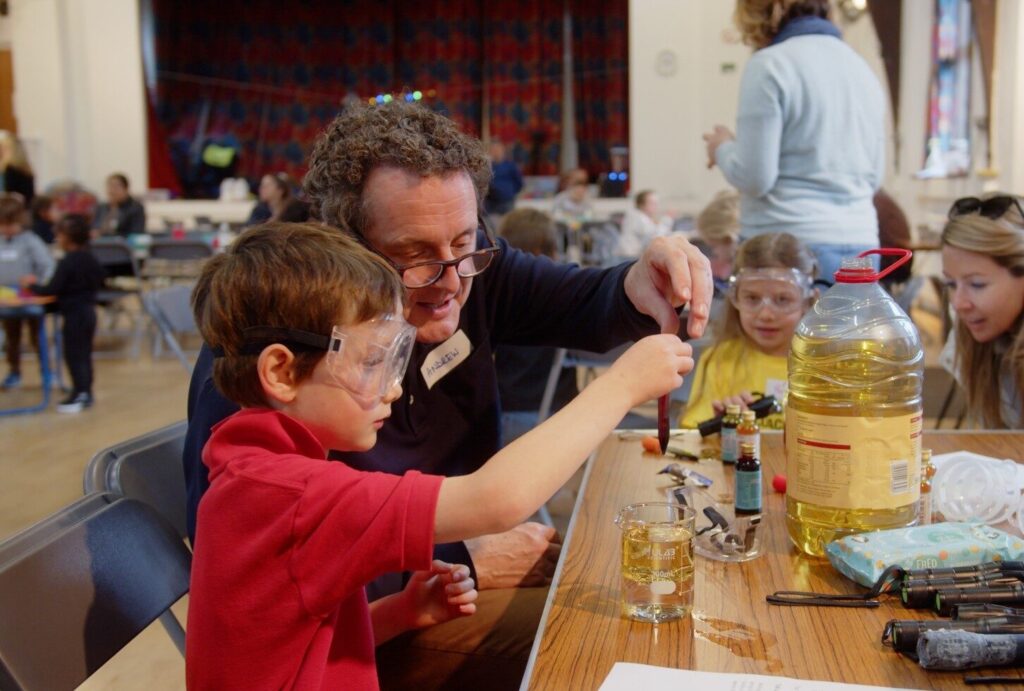Who would have thought it? We’ve always had to defend the word ‘messy’ in conversation with church leaders, at training events and in our books; and there’s no doubt there will always be those who will find it just too uncomfortable an adjective for anything to do with church. However, lately I’ve come across a new challenge on my travels. It’s not the ‘messy’ that some people object to but the word ‘church’ itself. This has set me thinking. Why is it important that it’s Messy Church and what are the implications behind this possibly controversial description?
To call this new messy way of mission and ministry among families ‘church’ was in many ways a groundbreaking decision. Within the lifetime of many of us, church has most usually been understood as the gathered people of God at the main services on a Sunday, following certain liturgy, tradition and history. Now, of course, there has always been worship at other times, with morning and evening prayer in chapels, cathedrals and churches for example, but it has nevertheless been accepted that the principal service of worship comes on the day the first disciples discovered the empty tomb. For the first Christians, Sunday became the new sabbath day on which worship took place to remember the life-changing event of the resurrection.
However, thinking like this has had consequences. For some, it has meant that faith has been dangerously compartmentalised into just what happens on a Sunday. The result has been an unhealthy division between Sunday worship and worshipping God in the everyday of every day. Equally, it has led to the idea that all gatherings outside Sunday are no more than supportive and useful extras for those who are keen enough to meet in the week. The Mothers Union group on Wednesday, the Praise and Play with parents and preschool children on a Thursday, the home group on a Tuesday or the Friday evening Prayer Fellowship are not labelled ‘church’ in the same way as Sunday. But perhaps we’ve got it wrong.
Jesus did not have a lot to say about church, as has been observed many times, and he did not ever found a ‘church’ as such. His followers simply gathered around him wherever he was and that group became a sort of ‘travelling synagogue’, but one open to all, of whatever background, to join. ‘Where two or three are gathered together in my name’, says Jesus, ‘there I am in the midst of them’ (Matthew 18:20, KJV). Surely this is a definition of church. Whenever people are gathered around the story of Jesus to talk about faith and encourage each other to grow in that faith, then surely this deserves the name ‘church’.
Traditionally, work with children present has also been understood as an add-on or of secondary status compared to the main gathered worship on a Sunday. Children ‘leave church’ to go out to learn in Sunday school or other groups. This has sadly often had more negative consequences than good; and the idea that these children’s groups are also in fact ‘church’ has only recently become something many of us would advocate. Messy Church gatherings in some people’s eyes still have this status of being an event, albeit monthly in many cases, but not ‘the real deal’ as far as church is concerned. This has meant, for example, that when the pressure is on and there are problems finding enough people to run Messy Church, the church leadership has decided it can all too easily sacrificed it for the sake of keeping Sunday going.
Messy Church belongs to the family of fresh expressions of church that have grown up in the last 20 years or more in the UK and around the world. This is church that usually happens outside of the Sunday morning slot, on any day of the week and at a variety of times according to what works in the local community. In the same way, Messy Church is a worshipping community, or indeed a new missional community, because it is concerned both with sharing the faith with those who have not yet heard about Jesus, as well as building up that faith among the team and those who come.
Messy Church bears the marks of church according to many missionary definitions. Messy Churches are reproducing themselves rapidly (as the growing BRF directory attests) and lay people are being encouraged to take responsibility and leadership, in its mission of making more disciples. And there is a growing number of Messy Churches who are including the sacraments as part of their Messy Church life. They are celebrating communion, often as an introduction to or a follow-on from the meal together, and there have been many baptisms and even weddings! Importantly, Messy Churches are also not cutting themselves off from the universal church, as has so often happened with revival movements in the past. They remain within the family of the wider church but offer their own distinctive contribution to its overall mission and ministry.
Messy Church is, to my mind, rightly called ‘church’ and not a club, an event or some other less important description. In Messy Church, there are people coming together to look up toward God, outward to the world and inward to the fellowship, while desiring to stay connected to the big story of the Christian family down the ages and across the world.
I wonder what else being church (and not just another ‘messy happening’) means for you? Maybe you could talk about these things within your team and with those who belong to your traditional Sunday congregation. Church is undergoing a redefinition and Messy Church has been and is at the forefront of this.
You may also like

Woman at the Well
3rd Nov 2024
Seaside Sojourn
21st Oct 2024It seems that I always get booked to deliver in-person training at seaside locations. This trend continued last weekend, as I headed off to the coastal village of Seaton, Devon.

Our Survey Said…
7th Oct 2024Back in February 2024, Church of England kindly sponsored a survey, completed by 330 Messy Church leaders. This is what we...

Storytelling from within God’s Story.
10th Sep 2024Hi Messy Friends! My name is Andrew McDonough. I live in Australia, draw sheep and tell stories. It began long long ago w...

